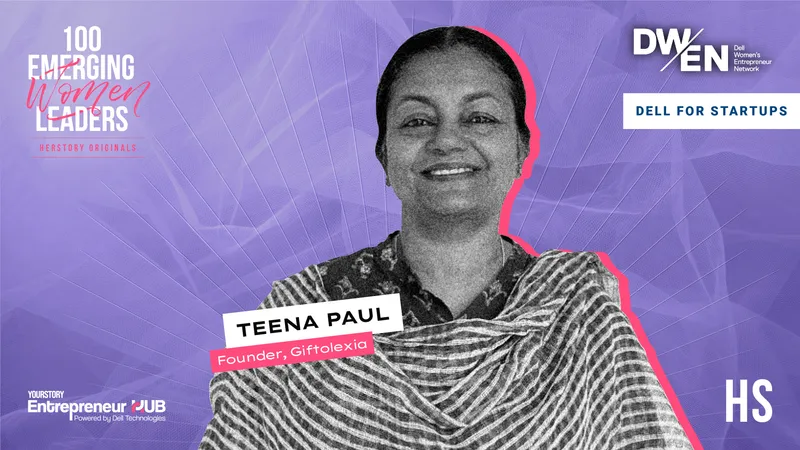Startup
Budget 2024 expectations from EV sector; Unlock your inner Sherlock with AyeVee

Hello,
A giant once, BYJU’S is staring at insolvency.
The NCLT has admitted bankruptcy proceedings against the company due to an outstanding debt of Rs 158.9 crore owed to the BCCI for sponsoring the jerseys of the Indian cricket team.
The edtech firm is in deep waters, fighting multiple legal battles with its investors and lenders.
New reporting also shows that the company allegedly hasn’t remitted the TDS to the government since July last year. It has also been reportedly locked out of over 100 tuition centres over unpaid rent and electricity dues.
ICYMI: What edtechs seek from the upcoming Budget.
Meanwhile, trouble is brewing for Paytm yet again as its parent One97 Communications Ltd received a warning letter from SEBI for unapproved related party transactions. The market regulator also warned the company to improve its compliance.
The slap on the wrist cost the company in the stock markets, with its shares diving 2.46% on the NSE.
This follows SoftBank exiting the company just days earlier, incurring a loss of $150 million on its investments.
The investment company has been weighing its investments carefully—exited PolicyBazaar earlier this year—as it looks to step up bets on AI infrastructure and industrial robotics.
Lastly, Tamil Nadu Story 2024, YourStory’s flagship event that strives to empower startups and homegrown brands of Tamil Nadu, is just around the corner.
From former Cognizant CEO Lakshmi Narayanan to space tech startup AgniKul Cosmos’ Srinath Ravichandran, a stellar lineup of speakers will talk about the trends shaping the startup and industrial ecosystem of the state on July 19.
Check out the agenda here.
In today’s newsletter, we will talk about
- Subsidies, lower tax on EV sector’s mind
- Unlock your inner Sherlock with AyeVee
- Giftolexia’s way to overcome learning disorders
Here’s your trivia for today: If you suffer from Chirospasm, what do you have?
In-depth
Subsidies, lower tax on EV sector’s mind
Finance Minister Nirmala Sitharaman’s interim, pre-election Budget offered much-awaited support for EV charging infrastructure, especially on the manufacturing side. It also zoomed in on public EV infrastructure to boost the adoption of e-buses.
With the full Budget 2024 now on the anvil under the newly-formed government, industry stakeholders have renewed their expectations for a new phase of the FAME scheme.
Many asks:
- The EV industry’s biggest expectation from Budget is an advancement on the FAME scheme as the second iteration expired on March 31, 2024.
- The scheme is expected to have a Budget outlay of around Rs 10,000 crore, the same as FAME II, according to two sources YourStory spoke with. It will continue to offer purchase subsidies on electric two- and three-wheelers.
- Beyond manufacturing and sales subsidies, EV players also reckon it would help if the government actively boosted usage, especially in commercial sectors.

Funding Alert
Startup: Tekion
Amount: $200M
Round: Equity
Startup: Namma Yatri
Amount: $11M
Round: Pre-Series A
Startup: Icanheal
Amount: Rs 15 Cr
Round: Seed
Startup
Unlock your inner Sherlock with AyeVee
Chennai-based Asiaville has launched AyeVee Interactive and Gamified Experience, an interactive gaming platform that lets users make choices to shape the narrative in different ways. Currently, the platform has two shows—a whodunnit and an escape feature film.
Features:
- Working on similar lines as Netflix’s Bandersnatch, the AI-powered platform offers immersive 360-degree AR/VR experiences, all while you watch a short film.
- The inspiration for the platform came from a live-streaming session held last year. AyeVee’s team live-streamed a murder mystery to engage with the audience. A scene was enacted, clues were provided, and the audience was asked to solve the mystery.
- AyeVee is available on iOS and Android platforms, and the games are streaming in Tamil and Malayalam, with English subtitles. There are plans to add more languages soon.

Women Entrepreneurs
Giftolexia’s way to overcome learning disorders
After Teena Paul’s son was diagnosed with dysgraphia—a learning disability that concerns impairments in written expression—she came across a gaze pattern-based screening tool from Sweden for learning disabilities.
Paul explains, “One cannot discern a learning disability by looking at a child. This is not an intellectual issue, but a processing difference, and one needs screening to identify this.”
Helping children:
- In 2017, she started Giftolexia with seed funding from NSRCEL to help children with dyslexia and other learning difficulties with methods and tools for early identification and remediation.
- She found a collaborator in Cyclops Medtech—a Bengaluru startup known for its eye-tracking device. The partnership led to an application that captured gaze data, which it initially tried out with children.
- With this deeptech tool, the screening age is reduced to eight years from the current average of 12 years, and the screening time to five minutes per child from 30 minutes taken for a pen-and-paper screening. It can screen for specific learning disabilities.

News & updates
- Tech M&A: Google owner Alphabet is reportedly in advanced discussions to buy fast-growing cybersecurity startup Wiz for roughly $23 billion. A takeover of Wiz, which makes cybersecurity software for cloud computing, would mark the tech giant’s biggest-ever acquisition.
- Design change: Elon Musk granted his engineers at Tesla more time to finish the development of a robotaxi prototype, pushing back the model’s heavily anticipated unveiling. While the CEO has unveiled little information, Tesla will own and operate some of the self-driving vehicles, while others will be privately owned but available for rent through Tesla’s network.
- Protect wildlife: Over 100 companies, including Unilever, L’Occitane, and Iberdrola, have called on governments to enact tougher policies to reach a UN goal of halting nature loss by the end of the decade. In 2022, the world agreed to a landmark deal to protect biodiversity, including a pledge to protect 30% of the world’s natural ecosystems.
If you suffer from Chirospasm, what do you have?
Answer: Writer’s cramp, or a spasm of the hand muscles.
We would love to hear from you! To let us know what you liked and disliked about our newsletter, please mail [email protected].
If you don’t already get this newsletter in your inbox, sign up here. For past editions of the YourStory Buzz, you can check our Daily Capsule page here.
Startup
Swiggy IPO: Retail portion subscribed 84%, overall 35% shares allotted

Food delivery and quick commerce platform Swiggy’s Initial Public Offering (IPO) was subscribed only 35% on the second day of bidding as broader market indices slipped in red.
Sriharsha Majety-led Swiggy witnessed the quota reserved for employees being subscribed 1.15 times by the end of bidding on the second day. Retail investors subscribed to 84% of the shares.
According to data from the Bombay Stock Exchange (BSE), non-institutional investors purchased 14% of their allocated shares, and qualified institutional buyers’ (QIBs) part was booked at 28%.
As of the second day, Swiggy’s IPO received bids for 5.57 crore shares, amounting to 35% of the total issue size. The issue was subscribed 12% on day one.
Swiggy, which is set to list on Indian stock markets on November 13, initially aimed for a valuation of approximately $15 billion, but later updated its RHP to seek a valuation of around Rs 87,000 crore or about $11.3 billion at the upper price band.
“Swiggy’s decision to lower its valuation leaves some upside room for the investors, we still recommend an AVOID recommendation to this issue due to the “reported negative” cash flows and ongoing losses, alongside a slightly high valuation of 7.7x FY24 price-to-sales,” noted Aditya Birla Money in a research report dated Nov 4.
It raised nearly Rs 5,085 crore (about $605 million) from anchor investors, which included life insurance and mutual fund arms of HDFC, ICICI, and SBI. The anchor book, which witnessed participation from over 75 key domestic mutual funds, also saw bids from global mutual fund investors like Astrone Capital, Fidelity, and Blackrock.
Swiggy plans to raise close to Rs 11,700 crore in its IPO which will include fresh issue of 11.54 crore equity shares along with an offer for sale (OFS) of 17.51 crore equity share by existing stakeholders. It has set IPO price band at Rs 371- Rs 390.
Startup
Northern Arc secures $65M debt commitment for maiden climate fund

Northern Arc has raised $65 million in debt commitments for its maiden Climate Fund, through its fund management arm, Northern Arc Investments IFSC Trust.
The debt commitments include $50 million from the United States International Development Finance Corp (DFC) and $15 million from the official Development Bank of the Republic of Austria, OeEB, it said in a statement on Thursday.
The non-banking financial institution’s (NBFC) fund aims to address critical funding gaps of growth stage startups in the solar energy, e-mobility, sustainable agriculture, and circular economy spaces.
“The significant investment from DFC and OeEB reinforces our ongoing commitment to revolutionise climate finance and transform the financial landscape for all households and businesses in India. By channelling these funds into green projects across our focus sectors of MSME, affordable housing, vehicle finance, agriculture finance, microfinance, and consumer finance, we aim to create a cascading effect that promotes sustainable development,” said Ashish Mehrotra, Managing Director and CEO, Northern Arc.
In October, the company launched its performing credit AIF fund (Category II), ‘Finserv Fund’, through its subsidiary Northern Arc Investment Managers (NAIM).
The fund aims to raise a target corpus of Rs 1,500 crore, including a greenshoe option of Rs 500 crore.
Northern Arc has assets under management (AUM) worth Rs 15,121 crore through its balance sheets and active AIF funds, as of September 30. It is backed by investors such as Sumitomo Mitsui Banking Corporation, LeapFrog, and 360 ONE, among others.
Startup
PhysicsWallah’s losses widen FY24 as rising expenses overshadow 2.6X revenue growth

Edtech unicorn PhysicsWallah (PW) saw its losses widen significantly in FY 2023-24, fueled by a sharp rise in employee benefit costs and other expenditures, casting a shadow over a 2.6-fold increase in operating revenue.
The Noida-based company also revised its FY 2022-23 figures, now reporting a loss of Rs 84.1 crore, in contrast to the Rs 8.9 crore profit previously stated in its earlier consolidated financial statements.
The heavy losses come on the back of the edtech company’s rapid expansion over the past couple of years. PW, which initially focused on the test-prep segment, has rapidly diversified its educational offerings over the past few years to encompass everything—from school education to skills training—casting its learning net over a wide base of learners.
PW’s rapid expansion comes amid a turbulent period for BYJU’S, once the leading edtech platform and the poster child of the Indian startup ecosystem.
The Alakh Pandey-led firm reported a consolidated loss of Rs 1,131.3 crore in FY24, up 13.5X from Rs 84.1 crore recorded in the earlier fiscal period.
The reported losses were impacted by non-cash adjustments, such as Compulsorily Convertible Preference Shares (CCPS) amounting to Rs 756 crore, according to the company. This CCPS expense is recorded in relation to the buyback clause provided in the issued CCPS, based on the conversion of accounting standards from IGAAP to INDAS, it added.
After excluding the non-cash adjustment, the company’s actual cash losses come to approximately Rs 375 crore, up 4.4X.
The company had remained the only profitable edtech firm until FY22, while steadily growing its top line.
Its operating revenue surged 160.7%, touching Rs 1,940.4 crore in FY24 compared to Rs 744.3 crore in FY23, as per its recent consolidated financial statements.
The startup’s total income reached Rs 2,015.1 crore, up 160.8% increase year-on-year (YoY).
For context, BYJU’S surpassed the Rs 2,000 crore revenue mark in FY20 and Eruditus in FY23, while PW achieved this milestone in its fourth year of operations. BYJU’S was incorporated in 2011, Eruditus in 2010, and PW in 2020.
Meanwhile, the company’s expenses surged by 280.4% to Rs 3,279.1 crore in FY24 compared with Rs 862 crore in FY23.
The sharp rise in expenses was driven by employee benefits, the firm’s second-largest cost centre, which jumped to Rs 1,159 crore—a 180.9% YoY.
Its other expenses surged by 442.4% YoY to Rs 1,660 crore, including a significant increase in miscellaneous expenses, which rose by 755.9% to Rs 1,452.7 crore.
Interestingly, PW also reduced its advertising and promotional expenses by 39.9%, although these still accounted for the company’s second-largest expense, totalling Rs 37.3 crore in FY24 compared with Rs 62.1 crore in FY23.
PW has experienced impressive growth, however, sustainable growth and profitability are essential, and it must navigate its own challenges as it expands.
Earlier this year, PW Co-founder Prateek Maheshwari told YourStory that FY24 was the year of “growth,” while FY25 is the year of “sustainable growth,” as PW aims to return to a profitable path.
“We have bounced back this year, with the first two quarters being EBITDA profitable for the first time in our company’s history,” he added. EBITDA, or earnings before interest, taxes, depreciation and amortisation, is a measure of core operational efficiency.
While the profitability metric for FY25 cannot be determined due to the transition from I-GAAP to Ind-AS, this fiscal year is expected to be the highest in absolute EBITDA profitability since inception, according to Maheshwari.
I-GAAP (Indian Generally Accepted Accounting Principles) refers to the traditional accounting standards used in the country, while Ind-AS (Indian Accounting Standards) is a set of accounting standards aligned with IFRS (International Financial Reporting Standards) for greater transparency and consistency.
In September, PW raised $210 million in a Series B funding round led by investment firm Hornbill Capital, with a sizable participation from venture capital firm Lightspeed Venture Partners. This was a significant milestone given the scarcity of substantial deals in India’s edtech sector lately.
With the latest funding round, PW’s post-money valuation has soared to $2.8 billion, making it the third-most valued edtech firm, trailing only Unacademy ($3.4 billion) and Eruditus ($3.2 billion), based on their last valuations.
-

 Startup Stories1 year ago
Startup Stories1 year agoWhy Millennials, GenZs Are Riding The Investment Tech Wave In India
-

 Startup Stories1 year ago
Startup Stories1 year agoStartups That Caught Our Eyes In September 2023
-

 Startup Stories1 year ago
Startup Stories1 year agoHow Raaho Is Using Tech To Transform India’s Fragmented Commercial Trucking
-

 Startup Stories12 months ago
Startup Stories12 months agoMeet The 10 Indian Startup Gems In The Indian Jewellery Industry’s Crown
-

 Crptocurrency8 months ago
Crptocurrency8 months agoLither is Making Crypto Safe, Fun, and Profitable for Everyone!
-

 Startup Stories1 year ago
Startup Stories1 year agoHow Volt Money Is Unlocking The Value Of Mutual Funds With Secured Lending
-

 Startup Stories1 year ago
Startup Stories1 year agoWhy Moscow-Based Kladana Considers Indian SME Sector As The Next Big Market For Cloud Computing
-

 E-commerce1 year ago
E-commerce1 year agoTop Online Couponing Trends To Watch Out For In 2016




